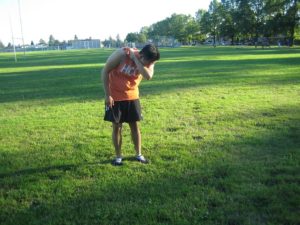Cystic acne is a serious form of acne. It forms once cysts develop deep beneath the skin. This might be due to a combination of oil, bacteria and dry skin cells that are trapped in the pores.
Even though anyone can end up with acne, cystic acne is likely to develop among individuals with oily skin. It is prevalent among teenagers, women and older adults with hormonal irregularities.
Generally, cystic acne improves over time. Nevertheless, the painful and stubborn bumps will not subside on their own. If an individual is suspected with cystic acne, consulting a dermatologist is needed so that the right medication can be started to clear the skin.
Characteristics
Cystic acne is the biggest form of acne and can go deep within the skin. It often appears as a boil on the skin along with other characteristics such as:
- Redness
- Large-sized cyst filled with pus
- Large, white bump
- Painful or tender to the touch
If an individual is suspected with cystic acne, consulting a dermatologist is needed so that the right medication can be started to clear the skin.
The face is the usual site where acne forms but also common on the neck, chest, arms and back. Cystic acne might even form on the shoulders as well as behind the ears.
Management of cystic acne
Due to its serious nature, over-the-counter measures for acne are not enough when dealing with cystic acne. A dermatologist should be consulted for prescription drugs. Depending on the form of treatment suggested, full results might not be evident for up to 8 weeks.
Isotretinoin
This is a potent prescription drug that is considered as the most effective treatment for cystic acne. It is derived from a strong form of vitamin A that is taken in tablet form daily.
Improvement is typically seen within 4-6 months. Even though it is effective, there are some serious risks linked with the treatment.
Antibiotics
Oral antibiotics can be used in treating cystic acne if it involves a wide area. These drugs work by reducing the bacteria and inflammation that adds up to the formation of acne. Nevertheless, it does not lessen the excess oil and dead skin cells.
Retinoids
The topical retinoids are also obtained from vitamin A but do not have the potency of isotretinoin. It works by unblocking the hair follicles to eliminate and prevent the severe form of acne from developing.
The retinoids can be used daily and available as gels, creams and lotions. Take note that cystic acne only responds to the prescription-strength formulas. If retinoids are used, it makes one prone to sunburn which is why it is vital to apply sunscreen as well.

